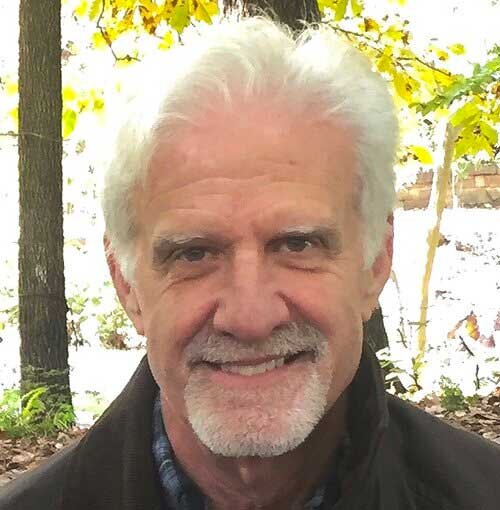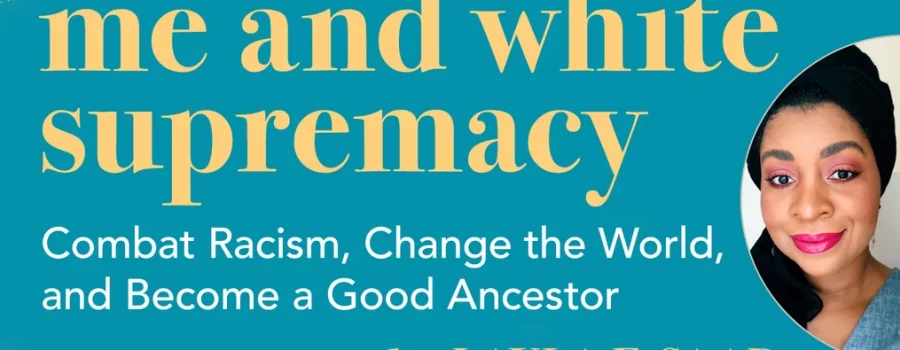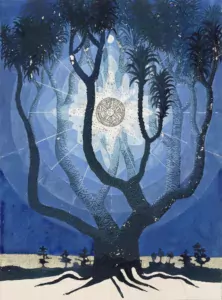
This article is offered by Glenn Siegel, MD, an emeritus Illuman Wisdom Elder and current Board member of Illuman of the Ozarks. Glenn retired as a psychiatrist after 37 years of practice, having co-created and directed a treatment program for psychiatric and addictive disorders for much of that time.
This is Illuman’s stated mission:
We are men transforming men through a power greater than ourselves. We are seeking a life-changing spirituality. Our primary concern is inner work that makes a difference in the world. We are fed by the wisdom traditions of forgiveness and radical inclusivity. Our work recovers traditional patterns of male initiation, affirms a masculine path to healing, reveals the true and false self and honors the path of descent. We do this through the power of nature, ritual, image, story, and Council.
Illuman is an organization of male-identified people who are predominantly White of European descent. Given the history of this country (USA), an essential part of our mission to promote “inner work that makes a difference in the world” must be to address the deeply conditioned and embodied aspects of Whiteness that have grievously built and shaped our national culture and inherent institutions (educational, health, legal, political, religious, and economic) and continue to do so. This article offers a particular perspective on Whiteness and White privilege as related to the mental health of those of us who “benefit” from our racial centrality, illustrating how it is not only those without the privilege of Whiteness who are adversely affected by this exclusive system. Perhaps as White folks recognize the damage in ourselves, we can be more committed to the inner work necessary to implement the radical changes this culture so desperately needs for the survival of our children, grandchildren, and beyond.
Western psychological and psychiatric disciplines characterize mental health as the absence of psychological pathology, the ability to adapt to cultural norms, and, often, the capacity to limit the time we experience disruptive feeling states, particularly grief. This emphasis on suppression of uncomfortable feeling states is relevant to White privilege. Another important consideration of mental health is one’s capacity to stay connected to present realities (to the degree that reality can ever be truly known). Anxiety and depression disconnect and diminish our functional abilities, and, of course, delusional thinking, inherent in psychotic disorders, disconnects even more profoundly. All of these difficulties reflect a lack of resilience to life’s challenges. The degree to which any of us are gripped with these states of mental disruption is usually apparent to some extent by the controls we then try to exert to shape our environment, including other people, so that we can feel we have some agency in decreasing the threats.
But what about White privilege? How does this relate to mental health? This unearned privilege is the enduring outcome of a system set up during the origins of this nation when racial distinction was constructed solely for the benefit of Whites, to keep our ancestors profiting, comfortable, safe, and more insulated from pain and suffering—all at the cruel expense of other human beings. These same ancestors were willing to go to war and secede from the Union to uphold this system. We White folks are all the beneficiaries of this societal construct and although we did not create it, we have yet to fully dismantle it. Despite its incompatibility with any religious, moral, or ethical standard that most of us allege to hold, the power of our White privilege continues to dominate cultural priorities. This incompatibility creates a split within us and, as such, cannot be seen as an indication of good mental health.
White privilege has a powerful and controlling tool to maintain itself just as other psychological disorders also do. This tool is White Fragility. Since White privilege was designed for comfort at the expense of another race, any threat to that comfort, including psychological, must be suppressed at best or violently eradicated at worst. White Fragility is an ingenious tool used to actively keep any challenges to White comfort from gaining any traction. Unlike Black, Indigenous, and People of Color, White folks have not had to face painful racial experiences repeatedly, have avoided racial self-reflection, and have been able to evade facing the impact of this devastating construct. Because of this protected state, little or no resilience has developed when challenging racial conversations come our way. Lack of resilience is, of course, another sign of mental fragility or disturbance. This privileged state, guarded fiercely by the myriad forms of White Fragility behaviors, reveal similar controlling dynamics inherent in most mental disorders. But since this system of White Fragility protecting White privilege is colluded with on such a mass cultural scale, we are not usually forced to acknowledge it.
There are some who believe White privilege does not exist, that once slavery ended and laws against racial discrimination in education and employment were enacted there is no longer basis for such a conceptual construct. If you’ve personally struggled in life with various other disadvantages, or had to work hard for your own achievements, it can certainly be difficult to feel “privileged” in any way. But White privilege doesn’t mean you don’t struggle in life, it just means you haven’t experienced the particular struggles that come with being a person of color. Consider: who among us White folks would actually choose to live in this country in the body and skin of a non-White person? Despite our common struggles with loss, illness, financial insecurities, and other life challenges, we know that our skin color, if White, will not be one of our barriers. We know that we will not have to talk to and warn our children about potential dangers in walking to a local store or jogging along the street; that we can travel to almost any part of this country without concern about our safety; that our neighborhoods aren’t being policed to ferret out suspicious-looking characters; or that we would be identified as suspicious ourselves. We don’t worry that being stopped by police for a burned-out taillight could have deadly consequences. We aren’t followed in stores as though we are criminals about to shoplift at any moment. The list goes on. Most of us, as White people, are relatively free to move though our lives without any such concerns—a freedom we feel entitled to and rarely even notice.
This is only a glimpse of White privilege. I will go so far as to say that many of us hold to White privilege with the tenacity of an addiction. As some of us know first hand, when an addict is in an active addiction process, anything or anyone will be sacrificed to maintain the addiction. No other connection can stand up to the relationship an addict has with his or her “drug” of choice (alcohol, street drugs, prescription medications, sex, pornography, video games, consumerism, insipid TV, etc.). It isn’t until the addict fully abstains and then faces and feels the pain of what the addiction allows escape from, that the neverending road of recovery begins and enduring change is even possible.
So it is with White privilege. Many of us have been addicted to this escape from reality. We have relied on other races to bear our pain and suffering for centuries, and we will try to silence or discredit anyone who tries to interfere with this construct. There isn’t space in this article to explore the relationship of White privilege to Shadow, but suffice it to say that our capacity to project suffering and pain into another race is directly related to disavowed shadow elements of our psyches.
Fortunately, we can wake up and face these truths, though it is not easy. Initially, we must bear shame, frustration, guilt, grief, and a sense of futility. But these are only steps along the way of our own recovery. We can do this with the support of each other and the willingness to courageously and vulnerably share our dawning realizations of privilege and deepen the conversation. One subtitle of Layla Saad’s book Me and White Supremacy is “become a good ancestor.” Rather than perpetuate the destructive legacy left to us, we can transform this ancestral pain for the sake of our own descendents. Facing truth is a powerful first step.
If you’d like to take the next step, join one of our “Me and White Supremacy” discussion circles. New ones are forming all the time. Check out this video for more details or click here to register.







Leave a Reply
Your email is safe with us.
You must be logged in to post a comment.